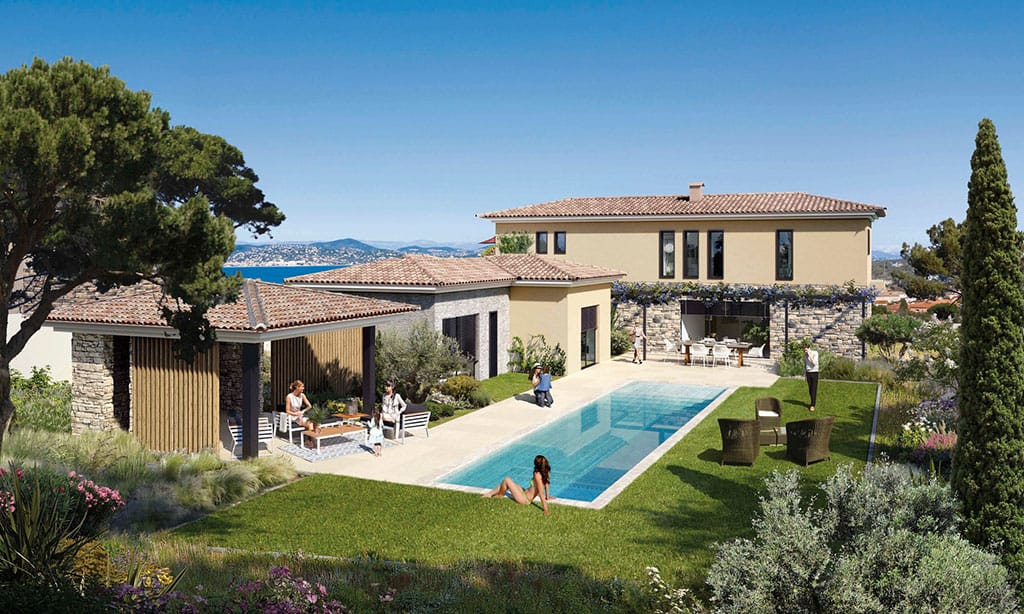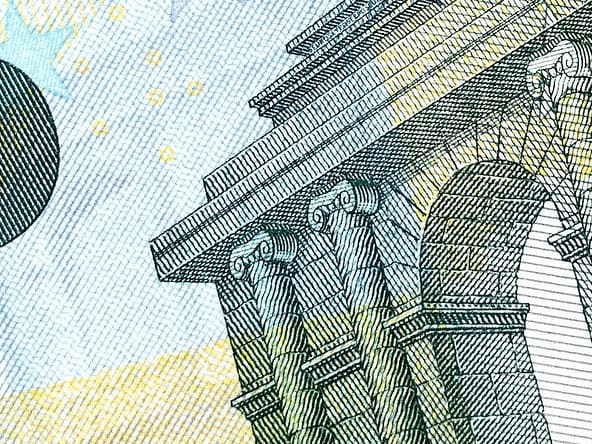When you’re interested in buying a home in France, there are a lot of financial considerations beyond the cost of the property itself. How you’ll use the property determines the taxes you’ll need to pay — for example, second homes are taxed differently than primary homes. Furthermore, luxury properties may be prone to more taxation than non-luxury properties, though you’ll pay less in other areas, like the notaire fee.
It’s necessary to understand the different property taxes in France, along with required fees that are due during the real estate transaction, so you stay compliant and don’t have to pay penalties for failing to meet your obligations.
Table of Contents
What Are the Main Property Taxes When Buying Luxury Real Estate in France?
In this section, we’ll go over several types of taxes that affect French property owners, including the new wealth tax that luxury homeowners need to consider.
What is the Taxe Foncière and How Does It Affect Property Owners?
The taxe foncière is an annual property ownership tax that the owner of a home must pay, even if they’re renting out the property, so long as they owned the property on January 1 of that year. The tax goes toward funding for local services and councils, including roads, schools, and sports facilities.
Local councils set their taxe foncière rates, and the decision deadline is mid-April of each year. According to The Connexion, in 2023, the taxe foncière increased by an average of 9% in the country’s 200 largest communes.
What Is Taxe D’Habitation and Who Needs To Pay It?
The taxe d’habitation is a property tax on furnished second homes, and it must be paid annually by the property owner. However, if you rent out your second home long-term and it’s legally considered the tenant’s primary residence, you won’t have to pay the taxe d’habitation.
If you rent out the home once in a while for short-term stays, though, like a few week-long holidays each year, then you will have to pay the taxe d’habitation. However, if the property is solely for short-term rentals — for example, if you use it only as an Airbnb — then you may have to pay the contribution foncière des entreprises (CFE) tax instead.
The taxe d’habitation was originally levied on all homes in France, but it was phased out for primary residences in 2018. The money raised from the taxe d’habitation helps fund local services. Local authorities set the tax rate, so it can be quite different for homes across France.
How Is Capital Gains Tax Calculated on Luxury Properties?
Capital gains tax in France comes into play when you decide to sell your property. According to Property Tax International, a non-resident of the European Economic Area (EEA) will pay a 19% capital gains tax, along with 17.2% in social charges, bringing the total to 36.2%. After six years of ownership, a relief percentage lowers the charges.
| Ownership Period | Capital Gains Tax Allowance | Social Charges Allowance |
|---|---|---|
| 1 Year | 0% | 0% |
| 2 Years | 0% | 0% |
| 3 Years | 0% | 0% |
| 4 Years | 0% | 0% |
| 5 Years | 0% | 0% |
| 6 Years | 6% | 1.65% |
| 7 Years | 12% | 3.30% |
| 8 Years | 18% | 4.95% |
| 9 Years | 24% | 6.60% |
| 10 Years | 30% | 8.25% |
| 11 Years | 36% | 9.90% |
| 12 Years | 42% | 11.55% |
| 13 Years | 48% | 13.20% |
| 14 Years | 54% | 14.85% |
| 15 Years | 60% | 16.50% |
| 16 Years | 66% | 18.15% |
| 17 Years | 72% | 19.80% |
| 18 Years | 78% | 21.45% |
| 19 Years | 84% | 23.10% |
| 20 Years | 90% | 24.75% |
| 21 Years | 96% | 26.40% |
| 22 Years | 100% | 28% |
| 23 Years | N/A | 37% |
| 24 Years | N/A | 46% |
| 25 Years | N/A | 55% |
| 26 Years | N/A | 64% |
| 27 Years | N/A | 73% |
| 28 Years | NA | 82% |
| 29 Years | N/A | 91% |
| 30+ Years | N/A | 100% |
There are a few exceptions to capital gains tax. For example, if the owner is a national of a non-EU country that has a non-discrimination clause in its tax treaty with France, an exemption may apply.
Who Is Subject to Wealth Tax in France and What Does It Involve?
When you own a property in France that has a net value of more than 1,300,000 euros, you’re required to pay the impôt sur la fortune immobilière (IFI), also known as the French property wealth tax. The IFI is due annually, and it applies to both residents and non-residents. The tax only applies to real estate assets, not other assets such as fine art or vintage cars.
The IFI rate ranges from 0.5% to 1.5%, depending on the value of the home. Refer to the chart below for tiered rates based on the home’s value:
| Fraction of the net taxable value of the assets | Applicable rate |
|---|---|
| Up to €800,000 | 0% |
| Between €800,001 and €1,300,000 | 0,50% |
| Between €1,300,001 and €2,570,000 | 0,70% |
| Between €2,570,001 and €5,000,000 | 1% |
| Between €5,000,001 and €10,000,000 | 1,25% |
| More than € 10,000,000 | 1.50% |
Note that the calculation begins at 800,000 euros based on the old wealth tax. Currently, the tax won’t be applied until a home’s value reaches 1.3 million euros.
Luxury property owners who don’t comply with the IFI could pay a penalty of 10% to 40%, along with interest charges.
What Types of Insurance Should You Consider When Purchasing a Luxury Property in France?
Owning a luxury home in France is a dream come true, and you’ll undoubtedly want to protect that dream, along with your other assets and lifestyle.
There are two main types of property insurance in France:
- Basic Coverage: Also called assurance habitation de base, basic home insurance in France covers personal belongings and structural aspects. This level of insurance is required by law when you own French property.
- Extended Coverage: Also known as garanties étendues, extended coverage is best for luxury property owners, as it includes high-value item categories like antique furniture, art collections and jewelry.
Depending on where you’re buying property in France, you may need additional types of insurance. For example, if you live on the French Riviera, it’s best to purchase garantie catastrophes naturelles, or natural disaster coverage, in the event of flooding or landslides. Many luxury home owners also purchase vol et sécurité (theft and security) coverage to further protect their assets, particularly if they won’t be living in their home year-round.
What Are the Typical Notary Fees and Other Costs for Property Transactions?
There are a number of additional fees to consider when purchasing French property. Fees can total 40% or more of the purchase price when buying a new property or 25% of the purchase price when the property is five or more years old.
Note that some property sale prices include all of the taxes in the final cost. You’ll want to speak with the seller, the notaire or your property agent to determine if the sales price is toutes tax comprises (TTC), meaning it already includes the necessary taxes.
Notaire Fee
A French notaire is a public official who’s experienced in French law, including property law. When a real estate transaction takes place, the notaire’s role includes notarizing documents, drawing up contracts, acting as a witness when deeds are signed and dated, and being responsible for money exchanged during the transaction.
The notaire fee depends on the sale price of the property, with higher-priced properties having lower notaire fees. For example, for a home priced at 6,500 euros or less, the notaire would charge approximately 3.8% of the sale price for their fee. For a home priced over 60,000 euros, a notaire would charge about 0.8% for their fee. You can check the latest charges on the official notaires de France website.
You can also calculate exactly how much the notares fees and taxes would be here.
If more than one notaire is used for the transaction, the rate will be split in half, meaning you won’t have to pay more even if more than one notaire is hired.
Stamp Duty
In addition to the purchase price of the property and the notaire fee, you’ll need to consider stamp duty as well.
Stamp duty costs 5.8% for French properties that are more than five years old. For newer properties, the stamp duty is 0.7% plus VAT. Value-added tax (VAT) in France is paid to the government whenever you buy goods or services. It can range from 5.5% to 20%.
Additional Fees
Land Registry Fees: There may be expenses for the land registration, depending on your mortgage and how many searches the notaire made to write the deed. In general, these fees are about 0.6% of the property value.
Mortgage Fees: Mortgage administration fees are usually between 0.5% and 1% of the loan amount, plus VAT. If you hire a mortgage broker, you may pay 1% of the loan amount for their fee.
Selling Agent’s Fee: While the selling agent’s fee is usually included in the sale price, this isn’t a guarantee, so you’ll want to confirm this before deciding on a property. The selling agent’s fee can be between 3% and 10% of the selling price, with higher rates typically applying to luxury properties in France.
Final Thoughts
French taxes that property owners need to prepare for include the annual property ownership tax, property tax specifically for second homes or designated holiday rentals, capital gains tax when you plan to sell, and wealth tax on homes valued at 1.3 million euros or higher.
Insurance coverage and costs should also be considered. For luxury homeowners, the legally required basic insurance coverage won’t be enough. Additional coverage for specific types of assets, natural disasters, and theft should be considered.
Financial planning beyond securing a mortgage for the cost of the property is necessary to stay compliant with the law and keep your investment safe. As tax rules can change, it’s best to work with a professional who can help you through the process of finding, securing and planning for your new home in France.
Contact the HomeHunts team today to discuss your plans for buying a home in France.


